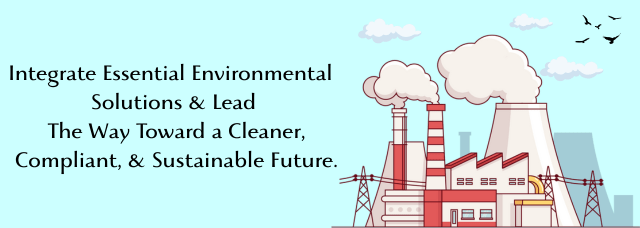In this era of sustainability, environmental compliance is more than just a regulatory necessity — it’s a key element of sound and future-proof industrial operations.
Whether establishing a manufacturing facility, a logistics center, or a construction project, integrating the proper environmental services right from the day one secures long-term success, compliance, and public confidence.
Here are the top five environmental services every industrial project should prioritize:
1. Environmental Impact Assessment (EIA) & Environmental Clearance (EC) Consultancy
This is the absolute first step. Before you lay a single brick or power up any machine, you need to understand your project’s environmental footprint. An Environmental Impact Assessment (EIA) systematically identifies, predicts, and evaluates potential environmental effects.
It helps you plan how to minimize any negative impacts. Based on this thorough assessment, you receive the vital Environmental Clearance (EC) – which is a mandatory legal approval.
Key Benefits:
- Establishes legal and environmental viability.
- Identifies potential risks early in the planning stage.
- Ensures timely acquisition of mandatory clearances.
- Expert consultants navigate complex regulatory requirements and prepare detailed reports.
2. Water & Wastewater Treatment (ETP/STP) Solutions
Industrial operations inevitably produce wastewater — both from processes (effluents) and domestic use (sewage). Efficient treatment through Effluent Treatment Plants (ETPs) and Sewage Treatment Plants (STPs) prevents environmental contamination and supports water reuse.
Key Benefits:
- Effectively treats both industrial and domestic wastewater streams.
- Prevents pollution of rivers, lakes, and groundwater sources.
- Supports water conservation through reuse of treated water.
- Involves turnkey solutions: design, installation, operation, and maintenance.

3. Air Quality Management & Emission Control
Industrial activities often release pollutants into the air. Controlling these emissions is vital for the health of your community and the environment.
Key Benefits:
- Reduces airborne pollutants to within permissible limits.
- Ensures compliance with air quality norms.
- Incorporates continuous monitoring and emissions testing.
- Utilizes advanced technologies such as scrubbers, filters, and electrostatic precipitators.
4. Industrial Waste Management (Hazardous & Solid)
Industries produce various types of waste, some of which are highly hazardous. Handling all waste, especially dangerous materials correctly is non-negotiable.
Key Benefits:
- Manages all categories of waste in an environmentally sound manner.
- Mitigates health and safety risks associated with improper disposal.
- Ensures traceability and transparency in waste handling processes.
- Adheres strictly to national and state waste management regulations.
5. Environmental Auditing & Regulatory Compliance
Environmental regulations are always changing. Periodic audits help verify that your operations remain compliant and efficient while identifying opportunities for performance improvement.
Key Benefits:
- Assesses compliance with all relevant environmental laws and permits.
- Identifies and addresses potential non-compliance before it leads to penalties.
- Facilitates accurate and timely environmental reporting.
- Encourages continuous improvement and sustainable best practices.
Conclusion
Investing in these critical environmental services isn’t just an expenditure; it’s a strategic investment in the future. It safeguards your project, promotes sustainability, and ensures your industry contributes positively to our shared environment and economy.
At Sai BioCare, we offer end-to-end environmental solutions—from consultation to implementation—to help industries grow responsibly.
Let’s build a sustainable future together. Explore Our Services
